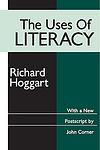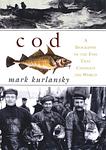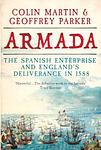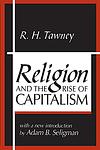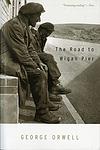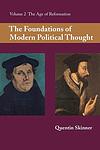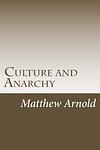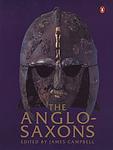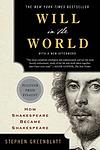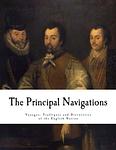The Greatest "England, European History" Books of All Time
Click to learn how this list is calculated.
This list represents a comprehensive and trusted collection of the greatest books. Developed through a specialized algorithm, it brings together 300 'best of' book lists to form a definitive guide to the world's most acclaimed books. For those interested in how these books are chosen, additional details can be found on the rankings page.
Genres
The "England" category of books typically includes literature that is set in England or written by English authors. This category encompasses a wide range of genres, including historical fiction, classic literature, contemporary fiction, and non-fiction works about English culture, history, and society. Books in this category often explore themes such as identity, class, tradition, and the complexities of English society. Whether it's a classic novel by Jane Austen or a contemporary crime thriller set in London, the "England" category offers readers a diverse selection of books that capture the essence of this fascinating country.
European History is a category of books that focuses on the historical events, people, and cultures of Europe. It covers a wide range of topics, including the ancient civilizations of Greece and Rome, the Middle Ages, the Renaissance, the Enlightenment, and the modern era. This category of books explores the political, social, economic, and cultural developments that have shaped Europe over the centuries, from the rise and fall of empires to the impact of wars and revolutions. It provides readers with a deeper understanding of the rich and complex history of Europe and its influence on the world.
Countries
Date Range
Reading Statistics
Click the button below to see how many of these books you've read!
Download
If you're interested in downloading this list as a CSV file for use in a spreadsheet application, you can easily do so by clicking the button below. Please note that to ensure a manageable file size and faster download, the CSV will include details for only the first 500 books.
Download-
1. The Making of the English Working Class by E. P. Thompson
This book is a comprehensive historical analysis of the formation of the English working class from the late 18th century to the mid-19th century. The author meticulously examines various aspects of society including the Industrial Revolution, the rise of Methodism, and political movements, arguing that the working class was not a byproduct of economic factors alone, but was actively self-formed through struggles over issues like workers' rights and political representation. The book is widely regarded as a seminal text in social history due to its focus on the experiences and agency of ordinary people.
-
2. Rights of Man by Thomas Paine
This influential work is a passionate defense of the French Revolution and a detailed examination of the concept of human rights. The author argues against the idea of monarchy and hereditary succession, contending that government should be a reflection of the people's will and that it should promote equality and social welfare. The book also explores the role of government in society, the nature of civil liberties, and the importance of a written constitution.
-
3. Alan Turing by Andrew Hodges
This biography provides a comprehensive look at the life and work of a pioneering computer scientist and mathematician who played a crucial role in breaking the Enigma code during World War II. It delves into his groundbreaking contributions to the development of computer science, his tragic prosecution for homosexuality, and his enduring legacy in the field of artificial intelligence and computing. The book not only celebrates his scientific achievements but also examines the social context of his time, shedding light on the challenges he faced and the impact of his work on future generations.
-
4. Letters On England by Voltaire
The book is a series of essays written in the form of letters that offer a critical examination of various aspects of English society, including its politics, religion, and culture, during the early 18th century. The author, a prominent Enlightenment thinker, contrasts the relative freedom and tolerance he observes in England with the more rigid and hierarchical society of his native country. Through his observations, he praises the English constitutional monarchy, the country's scientific achievements, and its respect for individual liberties, while also reflecting on the nature of trade, the role of the press, and the philosophies of notable English figures. The work is notable for its advocacy of religious tolerance and freedom of thought, and it played a significant role in promoting English ideas to a Continental audience.
-
5. The Uses of Literacy by Richard Hoggart
"The Uses of Literacy" is a sociological study that explores the impact of mass media and popular culture on traditional working-class values and communities in Britain during the mid-20th century. The author combines personal memoir with scholarly analysis to examine how the spread of American consumer culture and the rise of mass media have influenced British society, especially among the working class. The book serves as a critique of the commercialization of culture and the erosion of authentic, local cultures and traditions.
-
6. The Family, Sex and Marriage in England 1500-1800 by Lawrence Stone
This scholarly work provides an in-depth analysis of the transformation of family life, sexual mores, and marital structures in England from the 16th to the 18th century. It examines the shift from the medieval extended family to the closed domesticated nuclear family, exploring how economic, social, legal, and cultural changes influenced personal relationships and societal norms. The book delves into the roles of love, sex, and marriage during this period, revealing how the evolution of these concepts was intertwined with broader historical developments such as the Protestant Reformation, the rise of individualism, and the changing economic landscape. Through meticulous research, the text presents a comprehensive view of how private life was redefined over three centuries, reflecting the complex interplay between tradition and change in early modern England.
-
7. Cod: A Biography of the Fish that Changed the World by Mark Kurlansky
This book is a fascinating exploration of the historical, cultural, economic, and ecological impact of the codfish. It traces the role of this fish in shaping economies, sparking wars, and influencing culinary trends across centuries and continents. The book also delves into the devastating effects of overfishing and the current struggle to sustain cod populations. The narrative combines history, science, and gastronomy to present a comprehensive biography of this significant fish species.
-
8. The Armada by Garrett Mattingly
"The Armada" is a comprehensive historical account of the attempted invasion of England by the Spanish Armada in 1588. This work meticulously chronicles the political and religious turmoil of the era, the strategic planning and execution of the naval campaign by the Spanish, and the defensive maneuvers of the English under the leadership of Queen Elizabeth I. The narrative delves into the personalities of key figures, the technological and tactical aspects of 16th-century naval warfare, and the broader European context, culminating in a detailed examination of the battles and the Armada's eventual disastrous defeat, which had lasting consequences for the balance of power in Europe.
-
9. Cavaliers And Roundheads by Christopher Hibbert
"Cavaliers and Roundheads" is a historical account that delves into the turbulent period of the English Civil War in the 17th century, offering a detailed narrative of the conflict between the Royalists (Cavaliers) and the Parliamentarians (Roundheads). The book provides a comprehensive analysis of the political, religious, and social factors that fueled the war, while also painting vivid portraits of the key figures involved, including King Charles I and Oliver Cromwell. Through meticulous research and engaging storytelling, the work captures the complexities of the era, the brutal battles, and the ultimate transformation of the English monarchy and parliamentary system.
-
10. Religion And The Rise Of Capitalism by R. H. Tawney
"Religion and the Rise of Capitalism" is a comprehensive exploration of the historical relationship between the development of capitalism and the evolution of religious thought, particularly Protestant Christianity. The author delves into the moral and ethical dimensions of capitalism, arguing that its growth was significantly influenced by certain religious ideas. The book also discusses how religious beliefs have shaped economic systems and societal norms, and how these, in turn, have impacted religion.
-
11. Mary Queen Of Scots by Antonia Fraser
This historical biography delves into the tumultuous life of a sixteenth-century queen who became a figure of romantic tragedy. Born into a world of political intrigue, she ascended to the Scottish throne as an infant and was later married to the French Dauphin, becoming queen consort of France. Her reign was marked by a series of ill-fated marriages, complex political maneuvers, and religious upheaval. Ultimately, she was imprisoned and executed by her cousin, the Queen of England, after being implicated in a plot to claim the English crown. The book provides a detailed examination of her life, the challenges she faced, and her enduring legacy in history.
-
12. The Road to Wigan Pier by George Orwell
This book is a sociological exploration of the bleak living conditions among the working class in Lancashire and Yorkshire, England, in the 1930s. The author, who lived among the people, vividly describes the hardships of the poor and criticizes the systems that make them so. The latter part of the book presents a discussion on class and possible socialist solutions to the issues presented in the first part. It's a powerful critique of British society at the time and a call for better conditions for the working class.
-
13. The Foundations Of Modern Political Thought by Quentin Skinner
This book is a seminal work in intellectual history, offering a comprehensive analysis of the development of political thought during the Renaissance and the Reformation. The author meticulously examines the evolution of key political concepts and the context in which they arose, tracing the transition from medieval to early modern political theory. The text delves into the writings of influential thinkers and the impact of their ideas on the structure of government and the nature of individual rights, ultimately providing a detailed understanding of the origins of modern political ideologies and institutions.
-
14. English Society In The Eighteenth Century by Roy Porter
This book offers a comprehensive exploration of the social landscape of 18th-century England, delving into the diverse aspects of daily life and the remarkable transformations that characterized the era. It examines the intricate fabric of English society, from the lives of the aristocracy to the conditions of the poor, and how the age was shaped by factors such as urbanization, commercialization, and the Enlightenment. The narrative captures the contrasts and contradictions of the period, revealing how advancements in education, culture, and industry coexisted with persistent inequality and social strife, painting a vivid picture of a dynamic and evolving society.
-
15. Chronicles by Jean Froissart
The book in question is a historical narrative that provides a detailed account of the events, politics, and warfare of the 14th century, particularly focusing on the Hundred Years' War between England and France. The author, a medieval French chronicler, compiled extensive anecdotes, interviews, and reports, offering readers a vivid portrayal of the chivalric age, the lives of nobility, the impact of battles, and the social and political dynamics of the time. His work is considered one of the most important primary sources for the period it covers, offering a blend of factual history and the author's own interpretations and biases, reflecting the complex tapestry of medieval European society.
-
16. France And England In North America by Francis Parkman
This historical work offers a comprehensive examination of the complex and often turbulent relationship between France and England as they vied for dominance in North America from the sixteenth through the eighteenth centuries. The narrative delves into the exploration, colonization, and eventual conflicts that arose between the two European powers, highlighting the roles of key figures and the impact of their struggles on the indigenous populations. The series of volumes meticulously details the political maneuvers, military engagements, and cultural clashes that ultimately shaped the continent's colonial landscape and set the stage for the future of the United States and Canada.
-
17. London Labour and the London Poor by Henry Mayhew
This book provides a comprehensive look into the lives of the working poor in 19th century London. The author offers an in-depth analysis of the socio-economic conditions of the time, detailing the struggles and hardships faced by the city's lower classes. The book includes interviews with a wide range of people, from street-sellers and chimney sweeps to beggars and thieves, offering a vivid and often grim picture of Victorian London. It is considered an important social document for its first-hand account of the realities of urban poverty.
-
18. Culture and Anarchy by Matthew Arnold
This book is a series of essays that critically examines the culture and society of 19th-century England. The author argues that the pursuit of perfection and an ideal state of culture is the remedy to the social issues and disorder of the time. He presents two opposing forces, "culture" which seeks the holistic development of society, and "anarchy" which represents the chaos and disorder resulting from a lack of culture. Throughout the text, he explores the tension between these two forces, ultimately advocating for the importance of education and the pursuit of perfection in achieving a harmonious society.
-
19. The World Turned Upside Down by Christopher Hill
"The World Turned Upside Down" explores the radical ideas and beliefs that flourished during the English Revolution of the 17th century, a period of civil war, regicide, and the establishment of a republic. The book delves into the lives and thoughts of the Ranters, Diggers, Levellers, Quakers, and other groups who challenged the conventional religious and social order of their time. Highlighting how these groups sought to reshape an England they believed was in moral decline, the narrative provides a detailed look at the ferment of revolutionary ideas that questioned authority and tradition, advocating for radical changes in religion, politics, and society.
-
20. Boswell's London Journal, 1762-1763 by James Boswell
This book is a journal-style account of a young Scottish man's experiences in 18th-century London. It provides a vivid and detailed account of the social, political, and cultural landscape of the time. The author, a law student, records his interactions with notable figures of the day, his romantic pursuits, his struggles with depression, and his efforts to establish himself in London society. His observations offer unique insights into the life and times of 18th-century London.
-
21. The Anglo-Saxon Chronicle by Unknown
"The Anglo-Saxon Chronicle" is a historical record of the Anglo-Saxon period in England, from the 5th century to the 12th century. Composed by various authors over several centuries, the book provides a detailed account of the major events, battles, and political changes of the time. It covers the reigns of different kings, Viking invasions, religious reforms, and the daily life and culture of the Anglo-Saxons. The chronicle is a significant source of Old English literature and an invaluable document for understanding early English history.
-
22. London: The Biography by Peter Ackroyd
This book is a comprehensive exploration of the city of London, from its ancient origins to the modern era. The author delves into the city's rich history, culture, and unique character, examining its evolution through various lenses such as crime, religion, commerce, education, and entertainment. The narrative is brought to life with fascinating anecdotes, vivid descriptions, and a wealth of historical detail, providing an immersive and engaging portrait of one of the world's most iconic cities.
-
23. Will In The World: How Shakespeare Became Shakespeare by Stephen Greenblatt
"Will In The World" is a biography of Shakespeare that explores how he became one of the greatest writers in history. Stephen Greenblatt delves into the political and cultural influences of Elizabethan England, as well as the personal experiences and relationships that shaped Shakespeare's life and work. Through a combination of historical research and literary analysis, Greenblatt paints a vivid portrait of Shakespeare's world and the man who transformed it with his words.
-
24. Lords of Finance: The Bankers Who Broke the World by Liaquat Ahamed
The book offers an in-depth analysis of the events leading up to the Great Depression from the perspective of four central bankers from the United States, Britain, France, and Germany. The author argues that these individuals, through their decision-making and policies, inadvertently contributed to the economic turmoil of the 1930s. The book provides a historical examination of the global financial system, monetary policy, and the role of central banks, ultimately highlighting the human factor in economic catastrophes.
-
25. The Principal Navigations by Richard Hakluyt
"The Principal Navigations" is a comprehensive collection of English travel narratives from the 16th century, detailing a wide range of voyages and expeditions. The book includes accounts of journeys to the New World, Asia, and Africa, and features explorations by famous figures like Sir Francis Drake and Sir Walter Raleigh. The narratives provide a historical record of the era's discoveries, cultural encounters, and colonial endeavors, giving readers a unique insight into the period's maritime exploration and its impact on the world.
Reading Statistics
Click the button below to see how many of these books you've read!
Download
If you're interested in downloading this list as a CSV file for use in a spreadsheet application, you can easily do so by clicking the button below. Please note that to ensure a manageable file size and faster download, the CSV will include details for only the first 500 books.
Download



